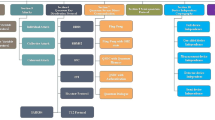Abstract
Security, efficiency and universality are the major concerns in distributed computation for how to get the services securely as there are a large number of nodes that require interactive authentication and key negotiation. These become more challenging especially for the semi-quantum environment as it is highly complicated and heterogeneous in nature. Most of the existing techniques reported in the literature are having high computation and communication costs, which reduce their importance for applicability in real-world environment. Moreover, these schemes are all classical computing environment without any quantum device, which make them are vulnerable to unknown attacks because they are all based on the computation complexity. Hence, in this paper, we propose a new semi-quantum key agreement protocol based on Multiple Servers to Server Architecture protocol. The protocol is used for mutual authentication, key agreement, login and other operations between classical users and two quantum servers. The main innovations of this scheme are that the classical users can log in to another unregistered quantum server in any domain with the help of their registered quantum server, and it has high security and efficiency, but also has universality and intergrade from classical devices to quantum era. Due to the semi-honest attribute is based on quantum techniques, the registered quantum server cannot get the session key between the user and the unregistered server. Finally, we have done a detailed comparative analysis for the communication and computation costs along with security and functionality features which proves its efficiency in comparison to the other existing schemes of its category.




Similar content being viewed by others
References
Asadi, F.K., Kimiaee, A.F., Wein, S.C., Simon, C.: Protocols for long-distance quantum communication with single 167Er ions. Quantum Sci. Technol. 5(4), 1 (2020)
Elo, M.: Understanding quantum computing. Microw. J. 63(9), 6–14 (2020)
Bennett, C.H.: Quantum cryptography: public key distribution and coin tossing. In: Proceeding of IEEE International Conference Computers Systems and Signal Processing Bangalore India (1984)
Lorenzo, G.C., Currás, L.G., Mohsen, R.: Finite-key analysis for memory-assisted decoy-state quantum key distribution. New J. Phys. 22(10), 103005 (2020)
Long, G.L., et al.: Theoretically efficient high-capacity quantum-key-distribution scheme. Phys. Rev. A 65(3), 32302–32302 (2002)
Deng, F.G., Long, G.L., Liu, X.S.: Two-step quantum direct communication protocol using the Einstein–Podolsky–Rosen pair block. Phys. Rev. A 68(4), 042317 (2003)
Jin, X.R., Ji, X., Zhang, Y.Q., Zhang, S., Hong, S.K., Yeon, K.H., Um, C.I.: Three-party quantum secure direct communication based on GHZ states. Phys. Lett. A 354(1–2), 67–70 (2006)
Nguyen, B.A.: Quantum dialogue. Phys. Lett. A 328(1), 6–10 (2004)
Kao, S.H., Hwang, T.: Controlled quantum dialogue robust against conspiring users. Quantum Inf. Process. 15(10), 4313–4324 (2016)
Yun-Jie, X., Zhong-Xiao, M.: Controlled quantum N-party simultaneous direct communication. Commun. Theor. Phys. 48(1), 79–82 (2007)
Tian-Yu, Y., Li-Zhen, J.: Improvement of controlled bidirectional quantum direct communication using a GHZ state. Chin. Phys. Lett. 30(4), 040305 (2013)
Chang, C.H., Luo, Y.P., Yang, C.W., Hwang, T.: Intercept-and-resend attack on controlled bidirectional quantum direct communication and its improvement. Quantum Inf. Process. 14(9), 3515–3522 (2015)
Kao, S.H., KHwang, T.: Controlled quantum dialogue using cluster states. Quantum Inf. Process. 16(5), 139 (2017)
Qi, J.M., Xu, G., Chen, X.B., Wang, T.Y., Cai, X.Q., Yang, Y.X.: Two authenticated quantum dialogue protocols based on three-particle entangled states. Quantum Inf. Process. 17, 9 (2018)
Michel, B., Dan, K., Tal, M.: Quantum key distribution with classical Bob. Phys. Rev. Lett. 99(14), 140501 (2007)
Krawec, W.O.: Security proof of a semi-quantum key distribution protocol. In: IEEE International Symposium on Information Theory (2015)
Zhang, W., Qiu, D., Mateus, P.: Security of a single-state semi-quantum key distribution protocol. Quantum Inf. Process. 17(6), 1–21 (2018)
Zou, X.F., Qiu, D.W.: Three-step semi-quantum secure direct communication protocol. Sci. China Phys. Mech. Astron. 57(9), 1696–1702 (2014)
Zhang, M.H., Li, H.F., Xia, Z.Q., Feng, X.Y., Peng, J.Y.: Semiquantum secure direct communication using EPR pairs. Quantum Inf. Process. 16(5), 117 (2017)
Sun, Y., Yan, L., Chang, Y., Zhang, S., Shao, T., Zhang, Y.: Two semi-quantum secure direct communication protocols based on Bell states. Mod. Phys. Lett. A 34(1), 1950004 (2019)
Chen, X.B., Wang, Y.L., Xu, G., et al.: Quantum network communication with a novel discrete-time quantum walk. IEEE Access 2019, 1–1 (2019)
Zhu, H.-F.: Flexible and password-authenticated key agreement scheme based on chaotic maps for multiple servers to server architecture. Wirel. Person. Commun. 82(3), 1697–1718 (2015)
Zhu, H.F., Zhang, Y.F., Xia, Y., Li, H.Y.: Password-authenticated key exchange scheme using chaotic maps towards a new architecture in standard model. Int. J. Netw. Secur. 18(2), 326–334 (2016)
Chang, C.H., Luo, Y.P., Yang, C.W., et al.: Intercept-and-resend attack on controlled bidirectional quantum direct communication and its improvement. Quantum Inf. Process. 14(9), 3515–3522 (2015)
Zhu, D., Wang, X., Zhu, H.: Semi-quantum-honest key agreement scheme with three-particle entangled states in cross-realm setting. Quantum Inf. Process. 19(10), 1–18 (2020)
Gisin, N., Ribordy, G., Tittel, W., Zbinden, H.: Quantum cryptography. Rev. Mod. Phys. 74, 145–190 (2002)
Boyer, M., Gelles, R., Kenigsberg, D., Mor, T.: Semiquantum key distribution. Phys. Rev. A 79, 032341 (2009)
Jiang, W., Clifton, C.: A secure distributed framework for achieving k-anonymity. Int. J. Very Large Data Bases 15(4), 316–333 (2006)
Zhu, D., Zhu, H., Wang, Z., Zhang, Y.: Three-level quantum satellite communication framework and its applications. Int. J. Satell. Commun. Netw. (2021). https://doi.org/10.1002/sat.1392
Acknowledgements
This work was supported by The Three Three Three Project Funded Projects of Hebei Province (Grant No. A202001017), Liaoning Provincial Natural Science Foundation of China (Grant No. 2019-MS-286), and Basic Scientific Research Project of Liaoning Provincial Department of Education (Grant No. LJC202007).
Author information
Authors and Affiliations
Corresponding author
Additional information
Publisher's Note
Springer Nature remains neutral with regard to jurisdictional claims in published maps and institutional affiliations.
Rights and permissions
About this article
Cite this article
Yang, J., Li, Z., Wu, J. et al. One-round semi-quantum-honest key agreement scheme in MSTSA structure without entanglement. Quantum Inf Process 20, 188 (2021). https://doi.org/10.1007/s11128-021-03123-y
Received:
Accepted:
Published:
DOI: https://doi.org/10.1007/s11128-021-03123-y




